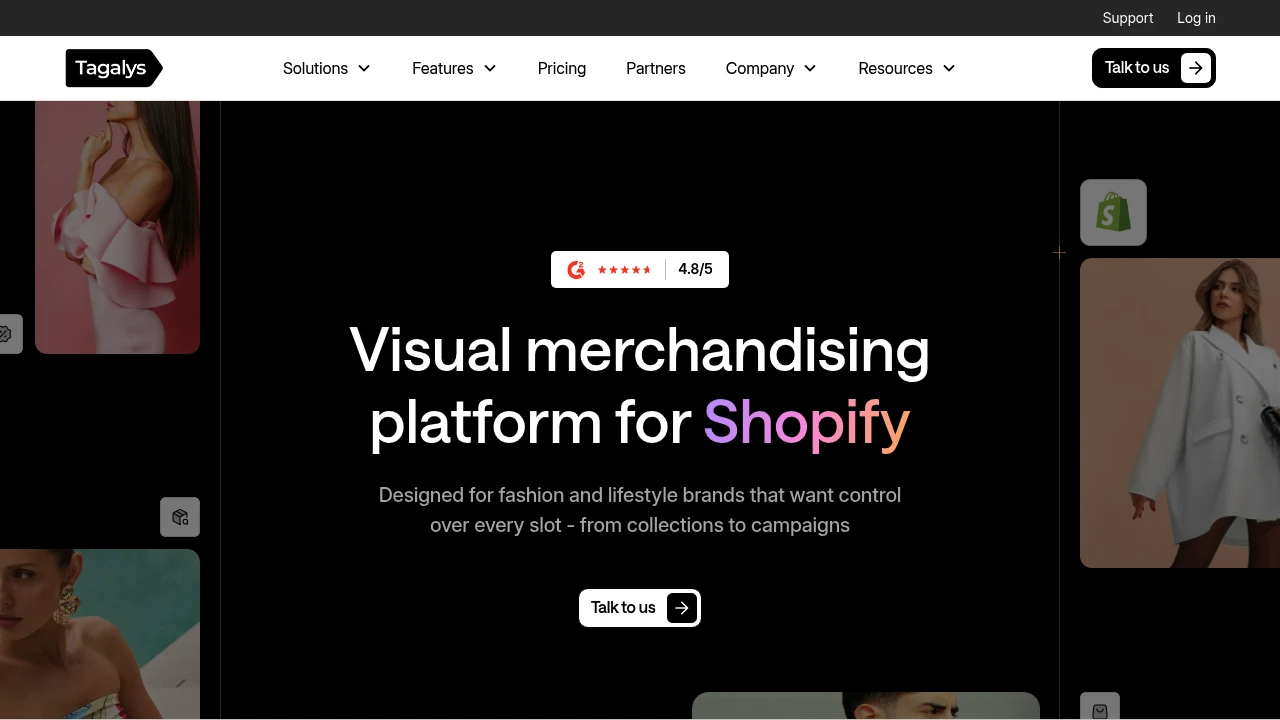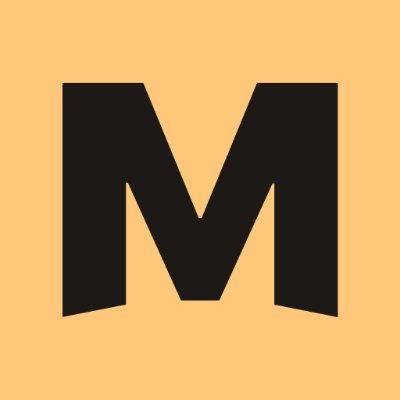Tagalys Reviews
Visually merchandise collections, optimize search, and offer smart recommendations.

Gain complete command over your Shopify store's visual merchandising. This platform is designed specifically for fashion and lifestyle brands that need to curate every customer touchpoint, from campaign pages to collection listings. You can move fast and stay flexible, ensuring every product is exactly where you want it.
Take control of the entire shopping journey with a suite of powerful tools:
- Fresh Collections: Easily manage Shopify collections, pinning products and applying dynamic rules to keep your store looking fresh without constant manual effort.
- Smarter Search: Help shoppers find what they want instantly with AI-assisted search that understands fashion terminology and customer intent.
- Relevant Recommendations: Keep customers engaged and increase average order value with intelligent product suggestions that drive conversions.
Unlock a goldmine of first-party data with analytics built for fashion. Go deeper than standard tools to see which merchandising strategies actually convert, track performance in detail, and make decisions based on actionable, fashion-specific insights.
Pricing
Tagalys pricing is based on two factors: monthly unique visitors and the features chosen, with custom plans created for each business. Pricing starts at $89 per month, though the company offers custom quotes for merchants with specific requirements.
The platform offers a 28-day free trial with full access to all features and personalized onboarding. There are no long-term contracts, and customers can upgrade, downgrade, or modify features at any time without penalties.
Target Market
Tagalys is ideal for fashion and lifestyle brands, particularly those using Shopify, seeking to enhance their ecommerce operations through improved product visibility and optimized search results. The platform specifically targets Shopify Plus users who need sophisticated merchandising control.
Ecommerce managers, merchandisers, and digital marketing teams primarily use the platform, focusing on enhancing product visibility, optimizing search results, and increasing conversion rates. The typical customer is a fashion brand that wants to recreate the curated feel of physical store merchandising in their online store.
Notable customers include Harley-Davidson, MESHKI, Self-Portrait, Meri Meri, and other fashion and lifestyle brands operating on Shopify. The platform may not be suitable for very small businesses with limited product catalogs, as the robust features might be underutilized, or businesses not operating in fashion or lifestyle sectors.
Competition
Tagalys' main competitors include Klevu, Algolia, Searchspring, Nosto, and GroupBy. These platforms compete in the broader ecommerce search and merchandising space, though most take a platform-agnostic approach rather than specializing in fashion.
While Klevu provides search as a standalone service, Tagalys powers search, recommendations, and intelligent product listing pages together, collecting data across all funnels to gather incremental insights. This cross-funnel data collection helps accelerate conversion rates for customers using Tagalys search.
Algolia is known as a developer-first platform that requires technical resources for setup and customization. In contrast, Tagalys positions itself as merchandiser-friendly, allowing non-technical team members to make changes without engineering support. Searchspring offers similar visual merchandising capabilities but serves a broader range of ecommerce platforms and industries rather than specializing in fashion.
Technical Approach
Tagalys maintains 99.9% uptime backed by multiple server redundancies and Shopify's infrastructure, with most collections up and running within 48 hours thanks to server-side integration. The platform syncs with Shopify within minutes of changes, with timing varying based on update volume.
The Smart Ranking Engine is the platform's core technology, ranking products to maximize conversions by factoring in daily customer behavior, product attributes, and product freshness rather than simple bestseller sorting. This automated ranking runs continuously, updating product positions based on real-time performance data.
The analytics system works out of the box with no integration needed, tracking click-through rates, revenue, and conversions at collection and product levels. Fashion brands can identify slow-moving products, track search behavior, and analyze which recommendation strategies actually drive revenue.
Key Differentiators
The platform's focus on fashion creates specific advantages. Tagalys allows brands to group products into "Looks" that display as one block on product listing pages, then reuse these looks via lookbooks. This feature addresses the fashion industry's need to show coordinated outfits rather than individual items.
The platform integrates with Shopify Markets to tailor merchandising for each geographical region, pulling region-specific data on inventory, sales, and demand to customize merchandising per market. Canadian shoppers might see cold-weather gear prominently featured while Australian customers see summer styles, all automated based on local behavior patterns.
The platform also supports segment-specific merchandising for campaigns, allowing brands to show different product arrangements to customers arriving from Instagram ads versus email campaigns without duplicating pages.

